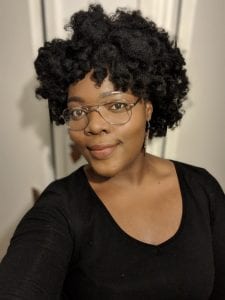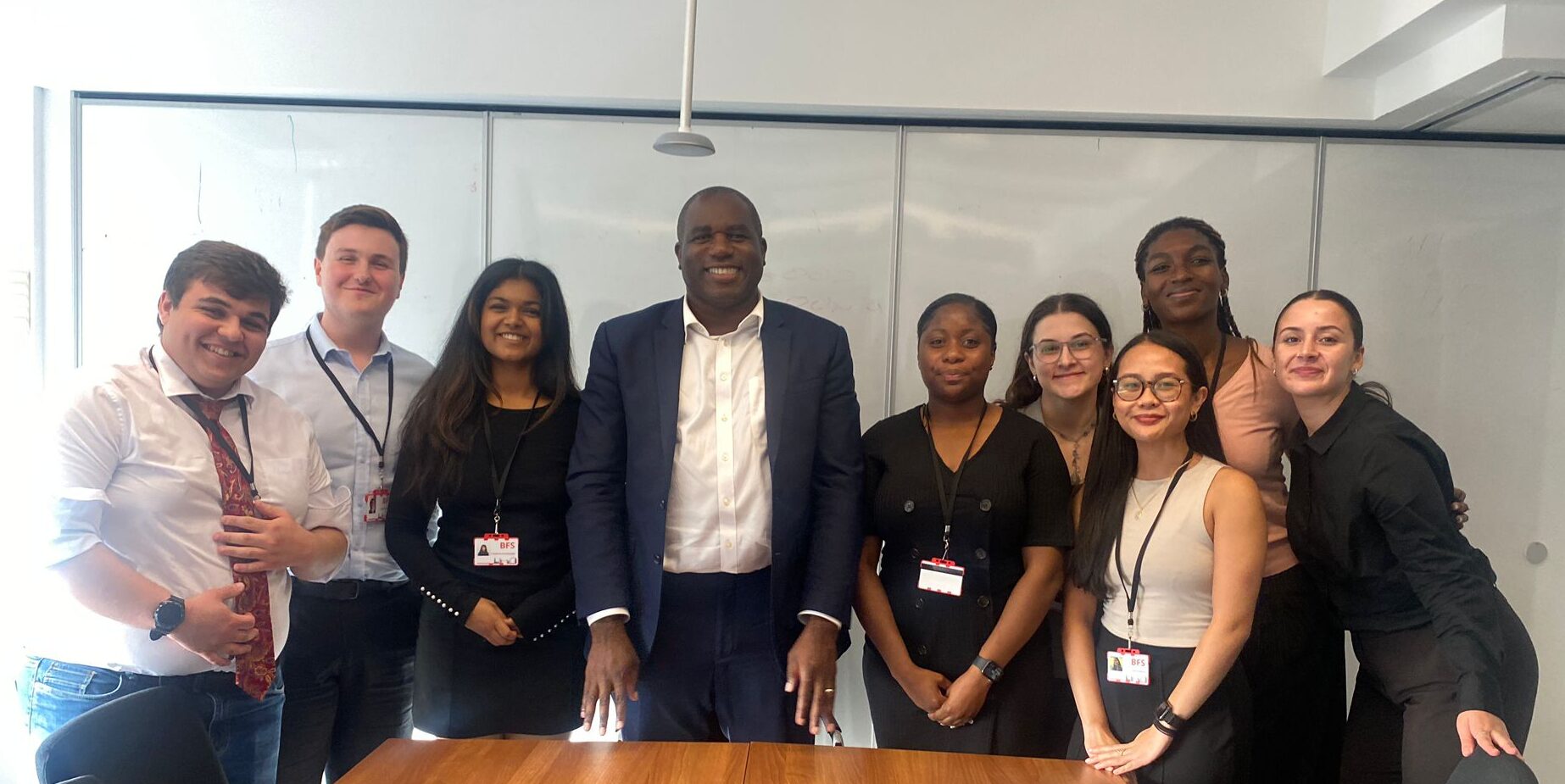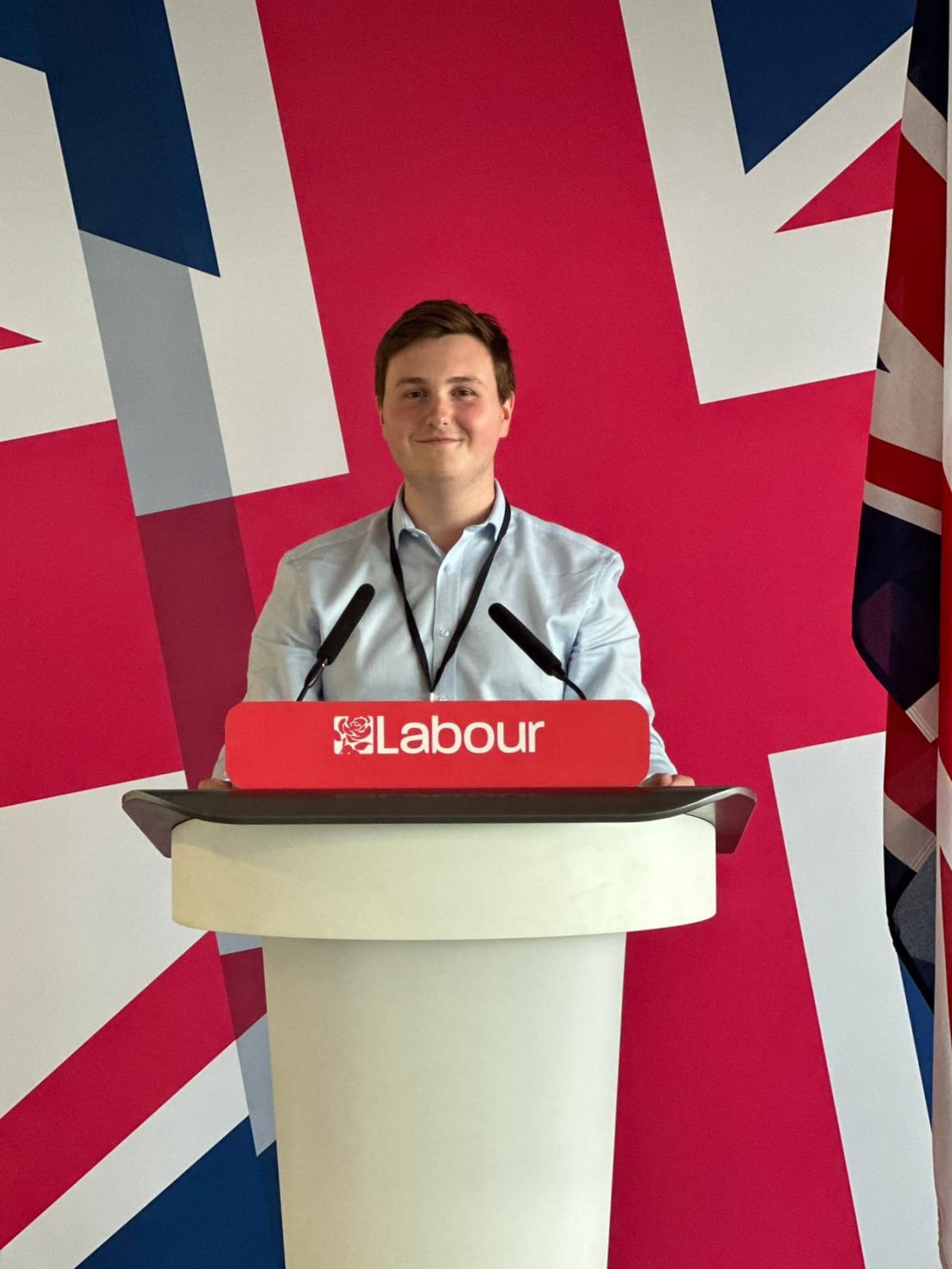…No-one should feel disadvantaged if they want a career in Parliament – and I am fully behind the Foundation’s efforts to support and equip young people with the skills, experience and know-how to succeed in public life.
Written by Leonie Mills
If you grew up less privileged or in  underrepresented environments, you may feel pressure to excel in all areas. Especially at work. Your job matters and your career trajectory matters more. Additionally, you may have interests, hobbies, side hustles outside of work that demand your attention too. But what happens when you also care about those coming behind you and want to make a change, so they don’t endure the same barriers you did?
underrepresented environments, you may feel pressure to excel in all areas. Especially at work. Your job matters and your career trajectory matters more. Additionally, you may have interests, hobbies, side hustles outside of work that demand your attention too. But what happens when you also care about those coming behind you and want to make a change, so they don’t endure the same barriers you did?
Is it your job as the underrepresented to work on breaking barriers and bringing people up? Many are not hired as diversity/inclusion/HR professionals but end up doing it alongside their job. As someone who has benefited from schemes and programmes that are specifically targeted towards women, working class or BAME individuals, I always put my hand up to assist at work for greater D&I. I know that if I don’t help then I can’t expect things to change. Yet it shouldn’t be like that. Essentially it is free labour that someone could and should be hired for.
On the one hand if you do nothing, I’m sure there are others at work who will. But there are certain skills, experiences and contacts that you have, and your input could bring value and move things forward. Conversely if you get involved and give extra time, it takes away from your actual job and it can become your identifier. Instead of being seen as an expert/specialist in your area you are now pigeonholed to being the ‘diversity’ person. You know “the one who’s always talking about diversity”. The one who is asked to speak about representation but not much else, despite you being knowledgeable and capable in your actual field.
So, what should you should do?
Of course, there isn’t a one size fits all answer. It wholly depends on your motivations and ambitions, but most importantly your experiences. Personally, people who haven’t benefited from targeted schemes and programmes tend not to involve themselves in such things. That is fine. No one should make you feel guilty for not doing anything, especially if it is free labour. As an underrepresented person focusing on your job and excelling in your career, that potentially means you will become an inspiration in the future. You don’t necessarily have to do anything, just by being successful, people now have someone to look up to.
During my time as a Patchworker, I noticed a trend of many who were involved in furthering diversity and representation at their work, university or school. It wasn’t their job, but it was an important priority. If you truly do care and want to make a change, ultimately you find the time to fit it all in. You organise and prioritise accordingly, so that your work doesn’t suffer but you are holding doors open for those coming behind you. Finding a solid group of people who have similar ambitions and passions are intrinsic in balancing all your commitments. People who you can rely on to move things forward in your absence but also keep you accountable for work.
Is it fair that those who are most marginalised end up doing extra work to produce a more inclusive environment that will benefit everyone?
—————
Leonie Mills is a graduate from the University of Sheffield where she obtained a Bachelor’s Degree in International Politics & Security Studies. Due to her focus on black feminism, after graduating she collaborated with her former lecture and published an article in the “International Feminist Journal of Politics”. Leonie is very passionate about politics particularly issues affecting the African Diaspora and women. She is currently on a graduate scheme at a media agency.
—————
The Patchwork Alumni Network shall over the coming months be profiling blogs from our Alumni, seeking to encourage an exchange of ideas and opinions.
The views, thoughts, and opinions expressed in the text belong solely to the author, and do not necessarily represent those of the Patchwork Foundation, the Alumni Network, or other group or individual.
Stay updated
Join our mailing list to stay up to date with all the latest!
Latest news
Testimonials



